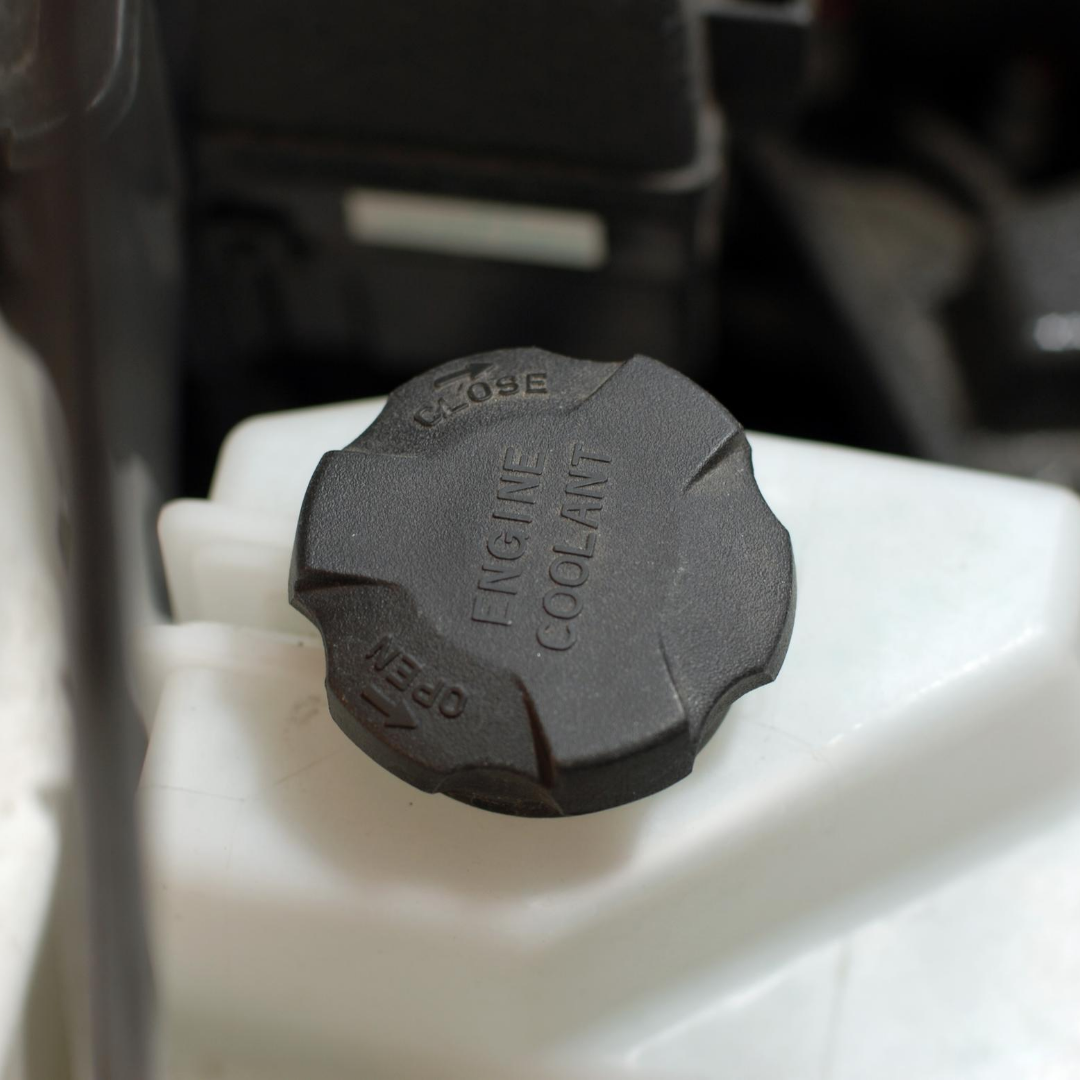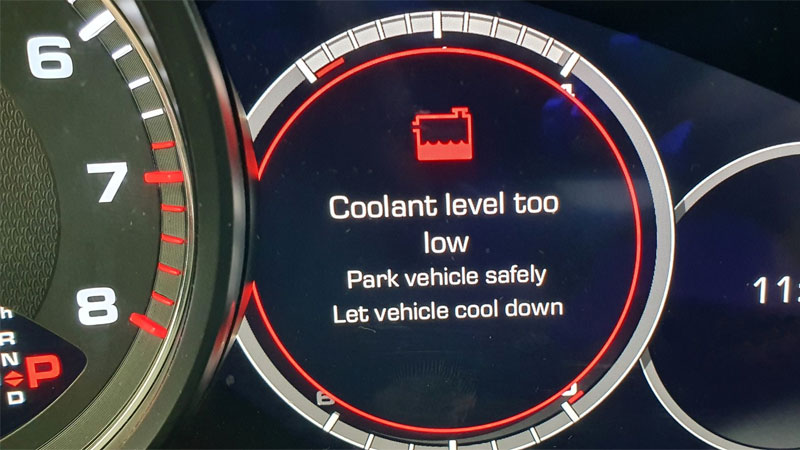If you’ve recently noticed that your 2004 Pontiac Vibe is losing coolant, you may be wondering why. Not only is this a potential safety hazard, but it can also be a costly problem to fix. This article will discuss the various reasons why your 2004 Pontiac Vibe may be losing coolant, as well as possible solutions to the issue. From problems with the radiator and cooling system components, to a faulty head gasket, it’s important to identify the source of the problem in order to prevent further damage to your vehicle. We’ll also discuss some preventative measures you can take to keep your Pontiac Vibe running smoothly and efficiently.
Why Does My Engine Coolant Keep Disappearing?

Engine coolant may disappear because of a slight crack in your hose, a slight hole in your radiator, or an issue with your water pump. It is also possible for coolant to leak into your vehicle as well as to vaporize into mist from your defroster.
Identifying & Addressing Coolant Leaks Promptly
A coolant, which is an essential component of an automobile engine, keeps the engine warm and prevents overheating. Although there is a chance that coolant levels may fall without any visible leaks or leaks, this is unlikely. As a result, it is possible that the car will use more coolant, which may be unsettling. If you do not top off your coolant on a regular basis, you may have a leak somewhere in the system and need to have a professional diagnose it. There is a possibility that if your car is not overheating, there is a radiator cap leak, an internal coolant leak, or an external coolant leak. If you wait too long, the cost of the repair will rise, so you must identify the source of the problem and resolve it as soon as possible.
Why Is My Car Losing Coolant But Not Leaking?

When coolant is lost but no leaks are detected, several parts may be to blame. There could be a blown head gasket, a fractured cylinder head, damaged cylinder bores, or a leak in the manifold. It could also be a hydraulic lock that is installed.
Act Now To Fix Coolant Leaks
You should take immediate action if your car is losing coolant but not overheating. If you suspect a coolant leak, you will most likely need to replace the radiator cap, internal coolant leak, or external coolant leak; the longer you wait, the higher the cost of the repair. Low coolant isn’t always indicative of a leak, as many people don’t check the fluid level in their cars as frequently as they should, but if you’re noticing that your coolant level is dropping on a regular basis, it’s time to have a professional inspect it. There is no easy way to determine where leaks are coming from, and without the appropriate tools and expertise, the problem may get worse. You should bring your vehicle to a professional for a quick and efficient repair so that you don’t have to worry about further damage.
Why Is My Car Losing Coolant But Not Overheating?
A radiator cap leak, an internal coolant leak, or an external coolant leak are all possible causes. If you wait too long, the repair cost of a coolant leak will rise.
Why Is My Car Using So Much Coolant?
If you don’t top off your coolant on a regular basis, a coolant leak could be present in your system. It can be difficult to determine where a leak originated. A coolant leak can often be diagnosed by a professional, but there are a few things you should check before bringing your car into a shop.
Identifying And Addressing Coolant Leaks
You should pay close attention to any strange odors coming from the engine compartment as well. If your vehicle smells sweet, pungent, or has a strange odor, it means that it has a coolant leak. You may also notice puddles of liquid underneath your vehicle, which are most likely coolant leaks. The coolant levels in a radiator or expansion tank should be checked. If the engine has not started, the coolant level should be at or near the full level. If the coolant temperature is low, there may be a leak in the coolant system. If the coolant is discolored, it is also radioactive. Make sure to identify the source of the leak as soon as possible. It can cause serious damage to the engine if left untreated, resulting in costly repairs. Keep an eye out for any of the warning signs listed above to ensure your vehicle and wallet are secure. If you suspect that your coolant system is leaking, you should take your car to a qualified mechanic as soon as possible.
How Do I Find Out Where My Coolant Is Leaking From?
Examine coolant leakage around the radiator cap, on hoses in the engine compartment (the ends where they are clamped to other parts) and on the radiator itself; and look for signs of coolant leakage on the radiator cap, hoses, and radiator itself. If a hose is leaking near a clamp, it may be necessary to tighten it with a drill.
Prevent Coolant Leaks And Save Money
Corinthration is the most common cause of coolant leakage from a radiator. Sediment or debris in the radiator can clog it and cause it to leak over time. An overheated radiator can also leak from the tank’s sealing gasket. You can repair a coolant leak yourself for around $50, and replacing the coolant can cost up to $100. Nonetheless, if you take your car to a mechanic, it can cost you up to $90, depending on the model of the vehicle. The cost of replacing the radiator can range from $300 to $900. Keeping your cooling system clean and replacing the coolant on a regular basis can help prevent coolant leakage.
What Is The Most Common Cause Of Coolant Leak?
An external coolant leak is most likely caused by small holes in your radiator hoses or loose connections between hoses and the cooling system.
What Is The Most Common Cause Of Coolant Leak?
There is a high chance that coolant leaks can be caused by corrosion within the radiator. When the tubes age and become weaker, they may leak sediment or debris that collects inside. It is also possible that the sealing gasket between the tank and the radiator will wear out, resulting in a leak.
Avoid Engine Damage: Don’t Drive With A Coolant Leak
It is not a good idea to drive a car with a coolant leak. It may seem like a simple case of theft for a short period of time, but the lack of coolant can cause the vehicle to overheat, resulting in serious engine damage. It’s critical to maintain the cooling system and to be aware of the signs that indicate it’s time for a tune-up, as coolant leaks can cause the engine to overheat and damage the engine. If you notice a coolant leak, make an immediate stop and inspect it, as this will help to prevent further damage to your engine.
Where Is The Most Common Coolant Leak?
Radiator pan gasket leaks are a common source of coolant leaks. In addition to leaking, the drain plug can leak, and if the radiator’s cap is no longer adequate to keep the pressurized coolant contained, it will leak or spray out.
Head Gasket Failure: Causes And Consequences
If your vehicle’s head gasket fails, you may notice coolant leaking from the engine. A head gasket failure can be caused by a variety of factors, including a lack of maintenance, engine design flaws, or a manufacturing flaw. If the head gasket fails, the coolant will escape and mix with the oil in the engine, resulting in a leak in the cooling system. When the engine overheats, it may result in decreased performance as well as potential serious engine damage. The engine may leak coolant from the head gasket, but it can also cause other problems as a result. This is most likely caused by a decrease in engine compression, resulting in a decrease in fuel efficiency. This could lead to a vacuum leak, which could cause power to be lost and fuel consumption to increase. As a result, clogged head gaskets can result in poor cooling efficiency and even engine damage. The failure of a head gasket can cause coolant to leak from the engine, as well as other issues. A qualified mechanic should be able to diagnose and repair a head gasket problem in your vehicle if it is displaying any signs of failure. Without this, the consequences could be disastrous and costly.